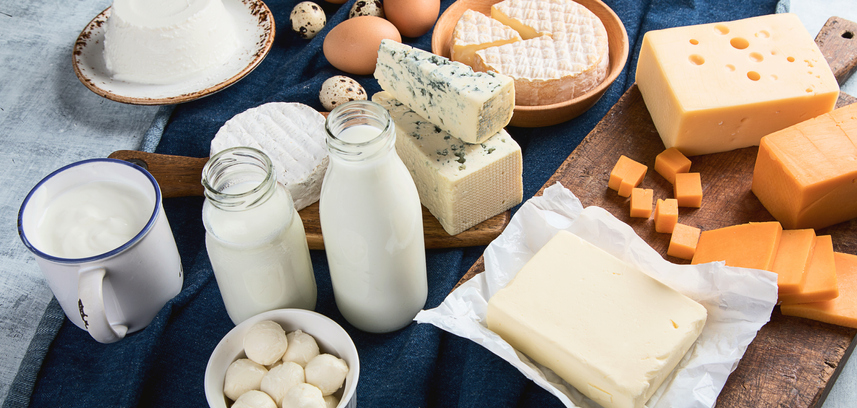
As people get older, their nutritional needs are likely to change. This is based on a multitude of factors, including changes in their overall health, as well as nutrient or vitamin deficiencies. While certain nutritional habits are always important to follow, such as eating fruit and vegetables and drinking lots of water, other variables will become increasingly important depending on a person’s age and development.
Ultimately, the cornerstone of anyone’s diet should be food rich in nutrients, so they can maintain a healthy lifestyle as they age. However, practicing good dietary habits is important at all stages of a person’s lifetime. Read on to find out more about nutrition in the life cycle.
Nutrition in Early Life: What Those Getting Their Diploma in Nutrition Should Know
A nutritious diet is one that is diverse and rich in nutrients that will keep them healthy. Components of a healthy diet include:
- Dairy products
- Fruits and vegetables
- Lean meats
- Other sources of protein (e.g. eggs, nuts, tofu)
- Whole grain foods
The nutritional needs of any individual hinges partially on their age range, as well as on changes in their body. For example, a baby’s diet usually relies on breastmilk and/or formula in the early months of their life. Once they start teething, they can eventually move on to solids upon the age of six months. They will also need cholesterol and fat to further their brain development. As soon as they can eat solids, they will need to eat food that is heavy in minerals such as iron.

Once a baby can eat solids, they will need food rich in minerals
When a person enters childhood, their palette will expand, even if it may take time to embrace certain foods. They will need the right kind of nutrition to suit their growth and development. This includes consuming the right kinds of vitamins, minerals, and nutrients (particularly protein, as this is essential for their muscle mass growth). Upon entering adolescence, their dietary needs will again evolve based on their need for increased energy, so food heavy in nutrients such as calcium becomes even more important.
How Nutritional Needs Evolve As a Person Gets Older, and What Can Happen
Once a person has entered young adulthood, their dietary needs will require minimizing their intake of salt, fats, and alcohol, while maintaining consistent physical exercise. Consistent consumption of water is also extremely important through all stages of life, as water itself is 60% of a person’s body composition, and dehydration becomes more of an issue as we age. When a person reaches a certain age, they can become more vulnerable to dehydration and weight loss due to their body not being as capable of noticing when they’re thirsty or hungry. While you take nutrition and health training, you can learn to better understand the needs and challenges of different populations with regards to the food they eat, and how these factors affect their health as they get older.

Dehydration can become more of a problem as one ages, due to physiological changes
During adulthood in general, various physiological changes can happen in the body, such as one’s skin thinning out, or losing muscle mass. When changes such as these happen, health issues such as nutrient deficiencies can occur, and the metabolism tends to slow. Aging can also lead to a loss in stomach acid, which makes it more difficult for people to absorb essential nutrients like magnesium and iron. Adults also have a need to consume fewer calories as they age, while still maintaining a nutrient-rich diet. Those who are in their 20s need a diet high in iron, protein, and calcium, as people in this age group won’t have much time left to build new muscle while their hormones are still in top condition.
How People Can Improve Their Nutrition Habits
Any individual looking to get the necessary nutritional value from their diet as they age will need to consistently adopt habits to ensure they’re getting what they need. This includes:
- Drinking lots of water daily
- Eating foods rich in minerals like calcium, zinc, and iron
- Getting essential vitamins, particularly ones soluble in water and fat
- Eating carbohydrates as a source of energy
- Making an effort to consume nutritious food
If they aren’t able to eat food rich in certain nutrients, students getting their diploma in nutrition should know that they can instead opt to take supplements to compensate for these deficiencies. Foods with calcium (e.g. dairy products) and vitamin D (e.g. fish) are essential for maintaining healthy bones, as calcium helps build bone strength, while vitamin D aids in calcium absorption. As skin can get thinner with age, internal vitamin D production decreases. Therefore, both calcium and vitamin D are important for maintaining healthy levels of both nutrients over time.

Dairy products are foods that are particularly high in calcium
Fibre is also important for gut and colon health, as well as regulating bowel movements. Protein is beneficial for older adults, as muscle mass and strength are gradually lost over time (known as sarcopenia), and protein can help to maintain it. Other helpful nutrients to consume as a person gets older include iron, potassium (which can prevent osteoporosis and kidney stones), omega-3 fatty acids (known for lowering the risk of heart disease), and vitamin B12 (the vitamin furthering nervous system development and red blood cell production).
Want to start taking nutrition and health programs?
Contact the Academy of Applied Pharmaceutical Sciences today!



